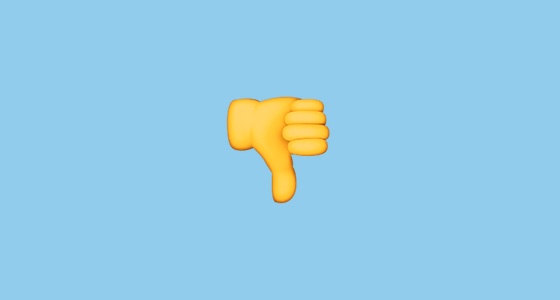My name is Kitty Stryker, and I’m a nerd.
I’m a lot of other things too, of course. I’m a freelance writer and blogger who has been typing out my opinions and critiques for years. I’m an adult performer. I’m a marketing consultant who’s worked on projects ranging from a soap opera cop show to an indie porn company. All of my jobs have involved me spending a fair amount of time on the Internet. The web also is where I spend a lot of my time off—gaming, chatting about current events, sharing photos of my cats. As a socially anxious person who sometimes struggles in large groups, the web has been a (mostly) safe place for me to talk to friends, learn new things, and indulge my interests.
As for my politics: I am considered by many to be the very model of a “social justice warrior”—a term that once was a compliment, but now is often used disparagingly by conservatives to indicate those deemed politically correct. I do my best to stay in my lane, writing mostly about my own experiences being marginalized as a sex worker, as a queer person, as a fat femme.
I try to keep myself accessible as a writer and activist. I signal-boost others who are writing about their struggles. And I believe, strongly, in the need and value of “callout culture”—i.e. the practice of using social media to hold individuals and groups accountable for their words and behavior.
Many of my friends hold similar views. We don’t like being passive bystanders to injustice, and as such are a pretty feisty lot. We often engage in heated debates over Twitter and Facebook—but usually keep friendships intact, even if we disagree. We generally give one another the benefit of the doubt, on the assumption that we’re all doing the best we can with the information we have. When someone steps out of line, we try to teach rather than punish. That often means calling people in—encouraging them to educate themselves more on other perspectives.
But in some instances, it’s necessary to go further.
In my own industry, adult film, callout tactics were employed by a group of insiders in the case of James Deen, an actor who had long been accused of violent behaviour. This led several companies to take action and drop Deen from their roster. Callouts can be a way for victims and their allies to put their foot down and say, “No. This thing is not acceptable.” Thanks to the power of social media, such actions can leverage the power of networks to quickly create awareness and bring change.
I have been on the receiving end of callout culture, too. Usually, I have chosen to sit back and listen—especially during discussions of racism or of transphobia. As someone who is white and cis-gendered (i.e., non-trans), those are types of oppression I have not experienced. Being called out has led me to do more research, and to read more by people who deal with marginalization in ways that I do not.
That’s how callout culture works when it works constructively. But like any tool, callouts also can be used for destructive purposes.
I once wrote an article entitled Some People Enjoy Being Prostitutes: Get Over It—which was a response to piece about sex workers, in which I had gotten “called out” by white, middle-class radical feminists for my role in (according to their allegation) “glorifying” the sex trade.
I was told repeatedly that I should be ashamed of myself. I was threatened with stalking, rape, and death. I was told that sex work is inherently abusive because we live in a patriarchal society, and because some parts of the trade are served by victims of human trafficking. I was repeatedly harassed about other pieces I’d written, most notably via the blogs Feminist Current and AntiPorn Feminists.
The feminists who were calling me a “cum dumpster” no doubt felt they were relating hard truths. Instead, they came off as bullies—which is ironic given that they were presenting themselves as women’s protectors.
Every time I write an article, I’m told that my on-screen job as an adult performer is “rape on tape”—or something similar. The comments on a Cosmopolitan piece I was quoted in got so toxic that the site was forced to disable comments altogether. Marginalized people often bear the brunt of these mobs—because they are in the weakest position to fight back.
So why does this mobbing behaviour occur?
One reason, I think, is linked to the fact that “punching up” takes more courage and effort than “punching down.” Every cruel, lazy comedian knows this. As Molly Ivins said twenty-five years ago, “when satire is aimed at the powerless, it is not only cruel—it’s vulgar.” Yet, too often, we laugh, however uncomfortably, at jokes made at the expense of disenfranchised people—so-called “disparagement humor.” In my case, I stopped going to stand-up shows when I grew tired of being insulted about my weight as part of the show. I’m not going to pay to be humiliated in public.
For some critics, it feels safer, and more cut and dried, to call out an individual for saying something racist, for example, than to dig into the root of why they felt it was okay to say it in the first place. It’s less overwhelming to yell at one person than to, say, go after institutional oppression.
In my case, I imagine that my feminist critics felt they would have more impact by engaging with me than if they wrote letters to Showtime about how, say, The Girlfriend Experience was making sex work look glamorous. And they’re probably not wrong. Showtime likely would not have responded to their accusations; while I’m invested in hearing other sides of an issue, and I genuinely care about the work I do having a positive impact on society.
In a way, capitalism rewards the worst kind of callouts. If you are the first to make a post go viral, read all over the Internet and discussed on blogs and news channels, you are more likely to gain access to lucrative speaking gigs and writing assignments. The system encourages marginalized people to fight each other rather than critique the system.
In some cases, you see social justice warriors from within the same community—people who know each other and have common ideological ground—tearing each other apart on social media over relatively minor disagreements. When this happens, it hits home that the very idea of a “community” is somewhat relative. I’m part of the sex-worker community, for example, simply because I’ve had sex for money at points in my life. However, I also feel alienated from the experiences of many of the most privileged members of that “community”: As someone with experience in survival sex work (i.e., trading sex for the bare necessities of life), and as a fat sex worker, many of my sessions have been more dangerous than those of my “peers,” who are mostly slender, ablebodied and middle class, with access to higher education. We may have little in common, yet we’re considered some sort of conglomerate.
A true community—offline or online—is a group of people who take care of each other, who feel responsible for the wellbeing of others within the group. A true community works together for both the good of the individual and the good of the group as a whole.
Radical feminists may say that they care about mutual care for women in the sex industry, but they consistently talk over us, presuming to dictate our wants and needs. Their organizations and initiatives often encourage our criminalization, ensuring that our access to other work is even more limited. (When I wanted to leave the industry, I was offered cupcakes and sympathy—but no leads on job training or interview opportunities.) While we are both under the “feminist” umbrella, our goals, beliefs and practices are vastly different.
My girlfriend is a trans woman, one of many trans women in my peer group. I have watched that subsection of my local San Francisco Bay Area community crash and burn, over and over again, as various members are deified as activists and local icons, and then pushed roughly off their pedestal because of something they did or said. I’ve watched it happen in the indie queer porn community, too. I’ve watched it happen among members of the kinky community in regard to issues surrounding sexual assault. In all disputes, there is an incentive to call the other person out first—because it is often the first accusation that gets the most traction and credibility on the web.
What saddens my heart most is when people who were once friendly to each other, even close friends, end up as enemies. If you have a bone to pick, why not just talk privately to one another? I feel as if my generation is terrified of one-on-one confrontations. Having mostly learned to communicate through a screen in large social networks, we feel safer online than off. Our social networks create webs of support, certainly, but they can also create a barrier to us learning how to hold our own boundaries without backup.
What can we do about this? How do we create space for people to be told when they screw up without burning them at the stake?
As an observer to any callout episode, I look at the person or entity being called out (and that includes when the person being called out is me). I ask myself: What is the power dynamic at play? Then, I look at how the recipient of the callout is responding. Are they apologizing, offering to educate themselves? Or are they more invested in being right and saving face? I also look at the demands of the person making the callout. Do they have a stated goal—or is it just about humiliating the target?
One of the things I tell myself often is: We’re all wounded animals, stumbling through the brush. I remind myself that to call someone else out on their BS is a scary thing that often ends painfully for everyone—and that I can, instead, choose to shut up, listen, and learn more. And that being called out, being told I’m wrong, having my internal prejudices shown to me, doesn’t mean I’m a bad person, just that I’ve picked up bad habits.
Perhaps, then, what we need to embody isn’t the social justice warrior, but the social justice monk—someone who reflects on the nature of social justice and how it can impact our lives. And perhaps we need to remind ourselves that tough love is, still, coming from a place of love, and a desire to see us do better.
We can do better. Shouldn’t we want to?






